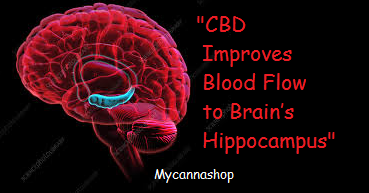Wednesday, 11 November 2020
"Cannabis and Fibromyalgia"
Wednesday, 7 October 2020
"CBD & Liver Disorders"
Actually the article claims that CBD “could be damaging our livers in the same way as alcohol and other drugs." ... the evidense was taken by a study from researchers at the University of Arkansas in Little Rock.
Also the doses was extremely higher than the normal (20mg/kg)...
Wednesday, 23 September 2020
"New Studies Reveals That Cannabis Helps PTSD Patients"
Previous research has shown that cannabis has the potential to reduce anxiety, or even prevent heightened anxiety in threatening situations. But up to this point, no studies had investigated this response in adults dealing with trauma - such as those with PTSD.
Two new studies point to the way that cannabinoids may help treat PTSD. One shows how cannabis can reduce activity in the amygdala (part of the brain associated with fear responses to threats) andd the other suggests that the plant’s cannabinoids could play a role in extinguishing traumatic memories. Both effects could be therapeutic for those suffering from PTSD - according to those studies.
Saturday, 15 August 2020
"The Antimicrobial Activities of Phytocannabinoids"
Novel antimicrobial drugs are urgently needed to counteract the increasing occurrence of bacterial resistance.
Extracts of Cannabis sativa have been used for the treatment of several diseases since ancient times.
It has been demonstrated that several cannabinoids show potent antimicrobial activity against primarily Gram-positive bacteria including methicillin-resistant Staphylococcus aureus (MRSA). As first in vivo efficacy has been demonstrated recently, it is time to discuss whether cannabinoids are promising antimicrobial drug candidates or overhyped intoxicants with benefits.
The worldwide spread of bacterial resistance against market antibiotics has been identified as one of the major threats to public health by scientists and healthcare authorities. Thus, new antibacterial strategies and antibacterial compounds are urgently needed to counteract the increasing occurrence of antibiotic-resistant and, especially, multidrug-resistant (MDR) pathogens, to keep the live-saving advantages toward bacterial pathogens.
In 2017, the World Health Organization (WHO) emphasized the crucial need for antimicrobial drug development against a group of 13 different genii, families, and specific species of pathogenic bacteria.The real problem is that the vast majority of these prioritized bacterial pathogens are drug-resistant Gram-negative bacteria.
However, antimicrobial resistances are also increasing in Gram-positive bacteria and, among the high priority pathogens, the Gram-positive pathogen Staphylococcus aureus is the leading cause of both healthcare and community-associated infections worldwide, and a major cause for morbidity as well as mortality.
Wednesday, 12 August 2020
"CBD Improves Blood Flow to Brain’s Hippocampus"
Cannabidiol (CBD) increases cerebral blood flow to areas of the brain associated with memory processing, specifically the hippocampus. The findings identify a potential mechanism for the use of CBD to treat disorders associated with altered memory processing, including Alzheimer’s disease, PTSD, and schizophrenia.
A single dose of cannabidiol (CBD) helped increase blood flow to the hippocampus, an important area of the brain associated with memory and emotion, finds a new study led by UCL researchers.
Researchers say the findings could be an important discovery for conditions which affect memory, such as Alzheimer’s disease and post-traumatic stress disorder (PTSD), and could help better target therapies.
In the study, published in the Journal of Psychopharmacology, researchers set out to investigate how CBD influences cerebral blood flow in different regions on the brain involved in memory processing.
Lead author, Dr Michael Bloomfield (UCL Psychiatry) said: “Cannabidiol is one of the main constituents of cannabis and is gaining interest for its therapeutic potential.





